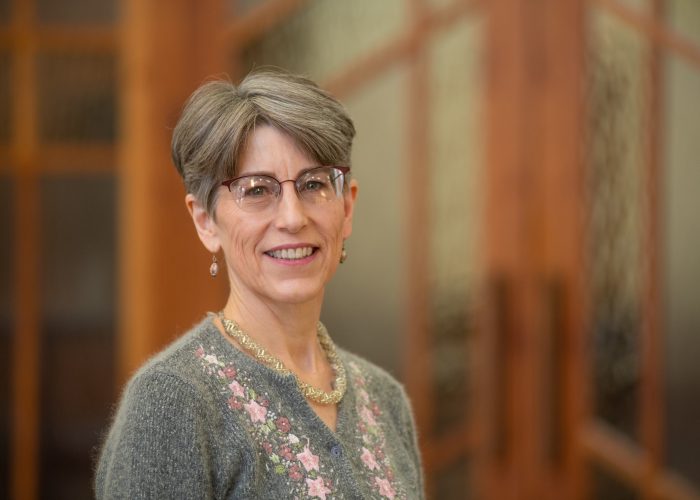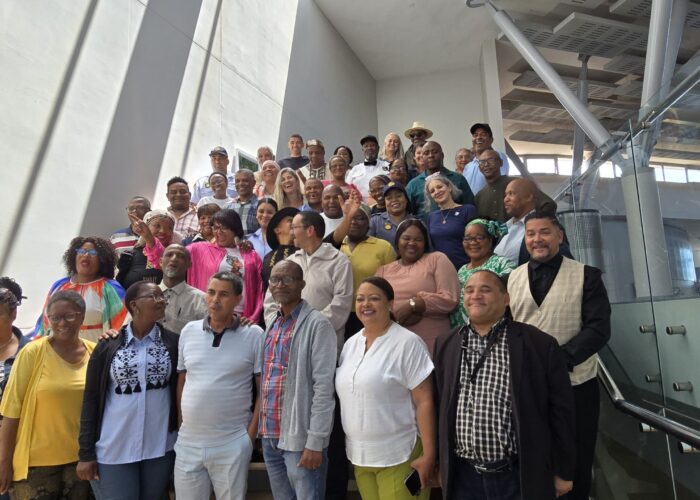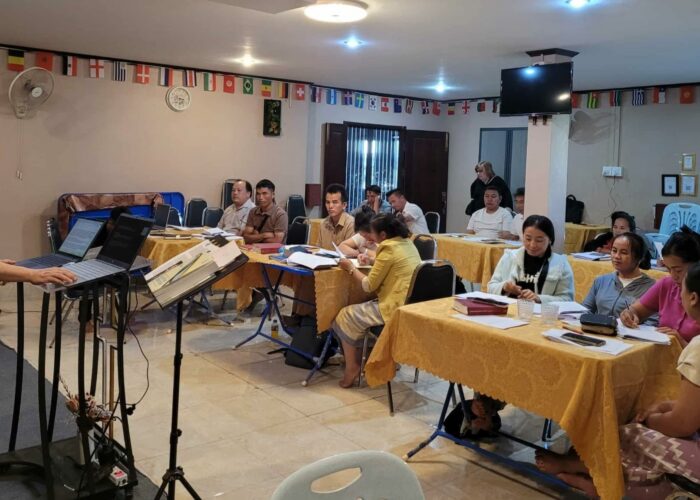Jonah and Memee Yang’s ministry grew out of their recommitment to follow
God’s call to mend relationships and foster theology in Southeast Asia.
NEWTON, Kansas (Mennonite Mission Network) — Jonah and Memee Yang kept running from their ministry. God kept chasing after them.
Today, Jonah and Memee are mission associates with Mennonite Mission Network. They lead seminars and training groups that reach out to empower women, mend relationships between married couples, and strengthen theological training for people living in Laos, Thailand and Vietnam.
“This is our passion,” said Memee in a video interview. “This is what we feel called to do.”
In years past, however, this calling wasn’t as clear. Jonah and Memee were married in 1985, the same year that Jonah became a pastor. “I thought that seeking new opportunities, having a good job and a good education those would be my priorities.” Jonah said. Even though he pastored at multiple congregations, he said, “I didn’t put 100% effort into the ministry.”
During that time, Jonah had dreams. In one, he could see the kingdom of God, shrouded in clouds, distant and unreachable. Another was about an all-consuming wildfire, sweeping across a field full of ripe produce, chasing after him. Jonah knew these were visions from God, beckoning him back to the church; to focus on his ministry. Yet despite these signs, Jonah couldn’t quite commit. His and Memee’s lives got busier and busier over the years. Their family grew. They both found careers. Everything came to a head when they moved from California to Michigan and bought a restaurant in 1999. For two years, the family tried to make it work. While business was good, money was always tight. Their children desperately missed their friends and family back home. The hours were excruciating.
“I was 155 pounds when I first walked in [to the restaurant],” Jonah recalled. “In the second year I went down to 98 pounds, because I worked like crazy.”
Their kids finally came to them with an ultimatum: they couldn’t live in Michigan anymore. Something had to change. The family decided to sell the restaurant and move back home to California. But first, Jonah asked their pastor to come and pray for them.
He recalled that after telling the pastor everything the restaurant, his dreams, and their family’s journey to Michigan the pastor summed it all up in a single statement. “You know, it sounds like you’ve been running away from God,” he said.
“I think so,” Jonah replied.
The pastor said that he would pray for the family on one condition that Jonah and Memee fully embrace their calling to serve the church. They agreed. That night, the couple wrote their commitments in their Bibles to remind themselves of the promises they made.

Memee’s commitment to ministry, written in the front of her bible on May 14, 2001. Photo provided.
Jonah likens it to his biblical namesake, who had to run away from God before understanding how to join in the mission God had given him. “[The Biblical] Jonah was in the whale for three days and three nights,” Jonah said. “But it took me two years to transform.”

Jonah’s commitment to ministry, written in the front of his bible on May 14, 2001. Photo provided.
The spark for their current ministry came in 2010, when Memee attended a Sister Care seminar for Hmong women in Minnesota. Sister Care, a program of Mennonite Women USA, is a series of seminars and retreats that provide tools for personal reflection and healing, as well as a space to celebrate God’s grace together, and discern how to respond to needs in their families and communities.
Memee had been raised in a traditional Hmong household herself born in Laos, she had spent most of her childhood as a refugee in Thailand before her family moved to the United States when she was eight. Jonah’s family, who is Hmong as well, had followed a similar trajectory. The Hmong people can trace their roots back to central China, and today their largest populations are in Southwest China, Southeast Asia, and the United States.
Growing up, Memee recalled that, as a Hmong girl, “you are taught to obey. You don’t have any pride in yourself. You’re like an item.” Moving to the United States meant that the cultures Memee encountered inside and outside her house were in constant conflict. In school, she learned to read and write English. She was encouraged to study hard in order to provide for herself and a family. Yet at home, she was told that marriage, and the ability to obey her future husband and his family, were the most important things in her life.
“I was torn between two different worlds,” she said. Every day, Memee was caught between “two different ways of living my life. And I was very confused. I was really, really emotional.”
Wrestling with her family’s expectations for her life had been difficult. Hmong women are expected to marry early; Memee and Jonah were married while she was still in middle school. She had to drop out of high school after she became pregnant; it was all simply too much. And yet deep down, Memee knew that she wanted to go back and finish high school. So, she did.
“That was the hardest thing ever for me,” she said. “But I thank God that he called me he found me in a time that I was so lost. He saved me.”
After high school, Memee continued her education through college. She studied psychology and became passionate about mental health and helping others. Afterwards, she became a social worker, and was assigned to work with a group of Hmong women. They shared about the expectations, hardships and struggles in their lives that were all too familiar for Memee. As a social worker, she now had tools to help them build confidence and unpack past trauma. Yet through her official capacities, she could not share the one tool that had made the biggest change in her life: her faith in a God that loved her just as she was.
“I liked to do counseling but how could I do it in a way that is from the gospel?” Memee recalled. “[How could I] teach them that they are valuable to God, and that they are God’s beloved daughters? That no matter what men think about them, no matter what their parents had taught them to make them feel so low, in God’s eyes, they are the perfect and the image that God had created and placed them into this earth as a woman.”
It was at the Hmong Sister Care seminar in Minnesota in 2010, that Memee witnessed how she could pair her ministry passion with her education.
After the seminar, Memee reached out to the facilitators Carolyn Heggen and Rhoda Keener. Heggen is a psychotherapist specializing in trauma healing. Keener is the Sister Care director for Mennonite Women USA. Together, Heggen, Keener and Memee would travel to Thailand in 2020 and give a Sister Care seminar for 55 women from 17 churches. The global pandemic pushed plans the group had for a second seminar that year back into 2022. After that second seminar, they got some surprising feedback from the participants.
‘Why can’t you do this for the men as well?’
Memee Yang (right) prays for Song Vang at the Thailand Sister Care seminar held Jan. 20-22, 2020. Photo by Rhoda Keener.
While part of the value of Sister Care came from the fact that it was purposefully a women-only space, the participants had a point. These women were going home to husbands who had not experienced the same healing and renewal that they had. Without a change in both spouses, many of the unhealthy home dynamics would not change.
Through that feedback, Jonah and Memee, along with Heggen, Keener, and David B. Miller of Anabaptist Mennonite Biblical Seminary (AMBS), gathered international students at AMBS to test out a new program for couples: Compassionate Care. Through the program, couples would practice methods and tools to share their pain, compromise and reconcile with each other, and eventually to renew their wedding vows, if they wish. The test program went well, and Jonah and Memee paired it with the third Sister Care seminar in Southeast Asia* in 2023.
The third aspect of Jonah and Memee’s ministry grew out of a desire to provide leadership training to foster the next generation of young faith leaders in Southeast Asia. In collaboration with AMBS, Jonah adapted and translated the seminary’s missional leadership development program, Journey, into the Hmong language. Jonah, working again with Miller from AMBS, taught a group of six Southeast Asian students from 2019-2022, meeting in-person in Thailand three times, and conducting class over Zoom during the pandemic.

The final Journey sesson for the 2019-22 group was held in-person in Thailand, and included a graduation ceremony. Left to right: Chia Chue Yang, David B. Miller (facilitator), Chue Chang, Leng Yang, Jonah Yang (facilitator) and KouYang XioungHer. Two additional graduates are not pictured for security concerns. Photo by Memee Yang)
“It’s important to train these new leaders for the future, so that they can train their local people to use the Anabaptist model as a resource for the future,” Jonah said. Looking forward, he is excited that the Journey program can be a next step for people who have attended the Sister Care and/or Compassionate Care seminar series and want to delve deeper into becoming faith leaders in their own communities.
Jonah and Memee became mission associates with Mennonite Mission Network in September 2023. For more information about their ministries and how you and your congregation can support their work, click here.
*Specific location withheld due to ministry sensitivity.






